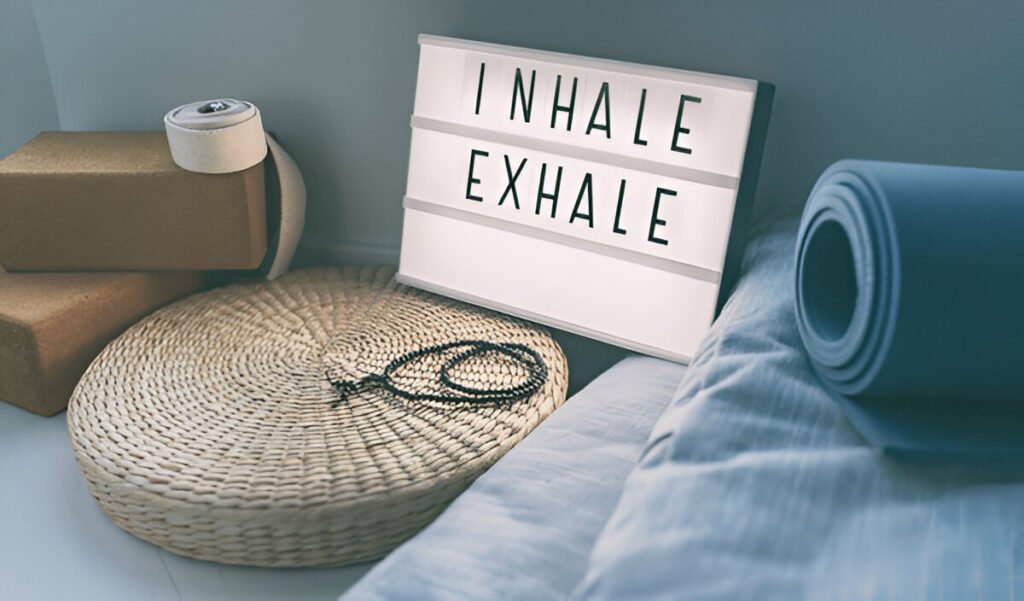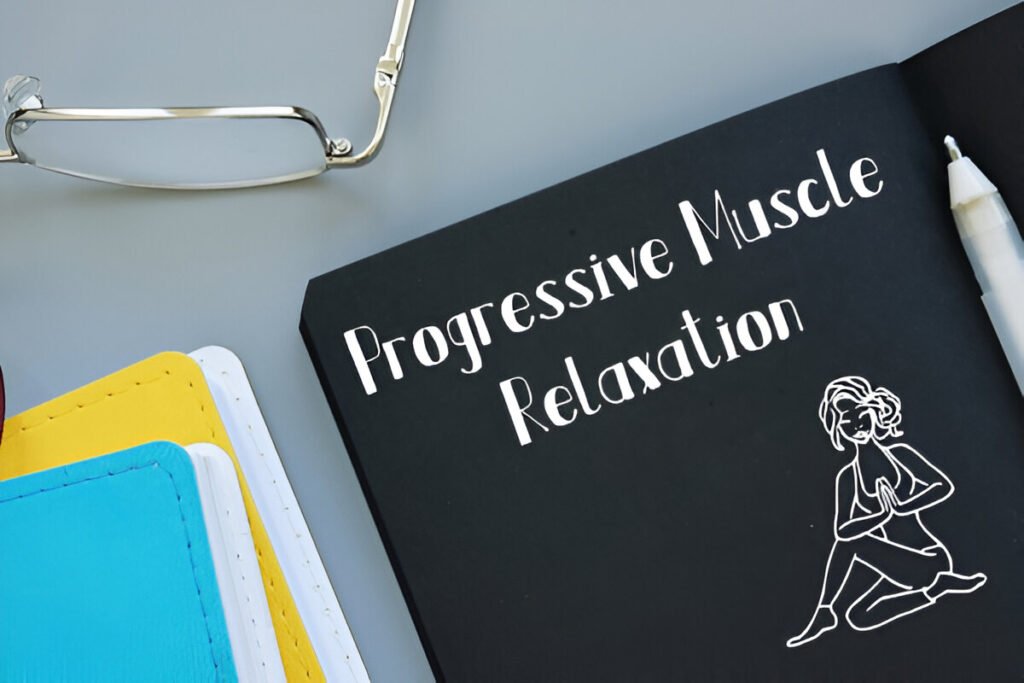Having enough sleep affects one’s physical, mental, and emotional well-being, which is crucial for general health. It significantly impacts cognitive function, mood regulation, immune health, and metabolic processes. Insufficient sleep can result in numerous health issues, including chronic fatigue, weight gain, anxiety, and even cardiovascular diseases. Therefore, prioritizing good sleep hygiene is crucial for maintaining optimal health and vitality.
Many individuals struggle with sleep challenges, including insomnia, restless leg syndrome, and sleep apnea. Stress, anxiety, and a fast-paced lifestyle are common contributing variables that can have a poor impact on the quality of sleep. Acknowledging these challenges is the first step toward finding effective solutions that promote better sleep and overall well-being.
Breathing exercises are a powerful tool for enhancing relaxation and reducing stress, proving to be highly effective in improving sleep quality. By concentrating on their breath, individuals can activate the parasympathetic nervous system, which calms the body and prepares it for restful sleep. Incorporating these exercises into a nighttime routine can lead to a more restful night and better overall health.
Understanding Sleep and Breathing
Breathing patterns play a crucial role in determining sleep quality, as shallow or rapid breathing can elevate heart rates and increase anxiety, hindering the ability to fall asleep. In contrast, slow, deep breaths promote relaxation and facilitate the onset of sleep. Recognizing this connection is essential for utilizing specific breathing techniques to enhance sleep.
To effectively transition into sleep, the body needs to be in a relaxed state. Techniques such as controlled breathing can lower cortisol levels and reduce sympathetic nervous system activity, creating an environment that supports quick sleep onset. By incorporating these relaxation methods, individuals can foster the necessary conditions for restful and restorative sleep.
Benefits of Breathing Exercises for Sleep
Breathing exercises provide significant benefits for sleep by activating the body’s relaxation response, which effectively reduces stress and anxiety levels. Regular practice of these techniques can enhance emotional resilience and lessen the symptoms associated with anxiety disorders. This calming effect is essential for creating a conducive environment for restful sleep, allowing individuals to unwind from the day’s stresses.
In addition to reducing anxiety, deep, rhythmic breathing plays a crucial role in lowering heart rates and fostering a sense of calm. This physiological response facilitates the onset of sleep and improves overall sleep quality by enabling the body to enter deeper sleep stages. By promoting relaxation and a slower heart rate, breathing exercises help individuals achieve a more restorative sleep experience.
Moreover, breathing exercises enhance mindfulness, cultivating a focused awareness that can mitigate racing thoughts and distractions as one prepares for sleep. Engaging in mindfulness through breath awareness creates a mental space that is conducive to relaxation and slumber. By incorporating these practices into a nightly routine, individuals can significantly improve their ability to fall asleep and enjoy a more peaceful night’s rest.

Top Breathing Exercises for Better Sleep
Breathing exercises can significantly enhance sleep quality, with various techniques tailored to promote relaxation and tranquillity. One highly effective method is diaphragmatic breathing, also known as abdominal or deep breathing. This method entails taking a deep breath through the nose, opening the diaphragm completely, and then gently releasing the breath through the mouth. By focusing on deep breaths, individuals can maximize oxygen exchange and engage the parasympathetic nervous system, which helps reduce stress and fosters relaxation, making it easier to drift off to sleep.
Another beneficial practice is the 4-7-8 breathing technique. To perform this exercise, inhale through the nose for four counts, hold the breath for seven counts, and then exhale slowly through the mouth for eight counts. This cycle can be repeated four times. The 4-7-8 technique works well to calm the nervous system and control respiration. The emphasis on prolonged exhalation activates the body’s relaxation response, effectively reducing anxiety levels and promoting a more restful sleep.
Box breathing is also an excellent option for those seeking to enhance their sleep quality. To repeat this structured technique, you must inhale for four counts, hold your breath for four counts, exhale for four counts, and then pause for four counts. Box breathing enhances concentration and self-control and provides immediate relaxation, helping to clear the mind and prepare the body for sleep. This practice can be particularly useful for individuals who struggle with racing thoughts at bedtime.
For those looking to incorporate a more holistic approach, alternate nostril breathing can be highly effective. This technique involves closing one nostril with the thumb, inhaling deeply through the open nostril, closing it with the ring finger, and then exhaling through the other nostril. This process is repeated several times. Alternate nostril breathing helps balance the two hemispheres of the brain, reduce stress, and calm the mind, making it an ideal practice for preparing for a restful night’s sleep.
Lastly, progressive relaxation breathing is a valuable method that combines deep breathing with muscle tension and release. This technique begins with inhaling deeply while tensing specific muscle groups, then exhaling while consciously releasing tension from those muscles. Starting from the feet and gradually moving up to the head, this practice promotes deep relaxation and aids in transitioning to sleep by releasing physical tension. By integrating these breathing exercises into your nightly routine, you can significantly improve your ability to fall asleep and enjoy a more restorative sleep experience.
Tips for Incorporating Breathing Exercises into Your Bedtime Routine
Incorporating breathing exercises into your bedtime routine can significantly enhance their effectiveness, starting with the creation of a calming sleep environment. Dimming the lights, utilizing soothing scents such as lavender, and minimizing noise can help foster a relaxing atmosphere conducive to relaxation and sleep. A serene environment sets the stage for successful breathing practices, allowing you to focus fully on your breath and unwind from the day’s stresses.
Establishing a consistent sleep schedule is another key element in improving sleep quality. By going to bed and waking up at the same time each day, you reinforce your body’s natural circadian rhythms. Integrating breathing exercises into this routine enhances their effectiveness and signals to your body that it’s time to wind down. Consistency helps train your body to recognize bedtime, making it easier to fall asleep quickly and stay asleep throughout the night.
Additionally, the effectiveness of breathing exercises can be amplified by combining them with other relaxation techniques. Engaging in gentle stretching, meditation, or listening to calming music alongside your breathing practices creates a holistic approach to relaxation. This multi-faceted strategy promotes a deeper sense of tranquillity, further improving sleep quality and allowing for a more restful night. By making these practices part of your bedtime routine, you can cultivate a more peaceful and restorative sleep experience.

Conclusion
Breathing exercises offer a simple yet powerful method to enhance sleep quality. By integrating these techniques into your nightly routine, you can significantly improve your ability to fall asleep and maintain restful sleep throughout the night. These exercises help calm the mind and body, creating an optimal environment for a rejuvenating rest.
Regular practice of breathing exercises is essential for maximizing their benefits. Consistency is key; making these exercises a regular part of your evening routine helps establish a calming pre-sleep ritual that signals to your body that it’s time to wind down. As you cultivate this habit, you may find it easier to transition into a state of relaxation, leading to improved sleep quality over time.
Finally, in a fast-paced world filled with stress and distractions, prioritizing effective sleep strategies like breathing exercises can lead to significant enhancements in overall health and well-being. By considering these practices as part of your lifestyle, you can foster a more restful night’s sleep, ultimately contributing to better physical, mental, and emotional health. Embrace the power of your breath to transform your sleep experience and enhance your quality of life.





